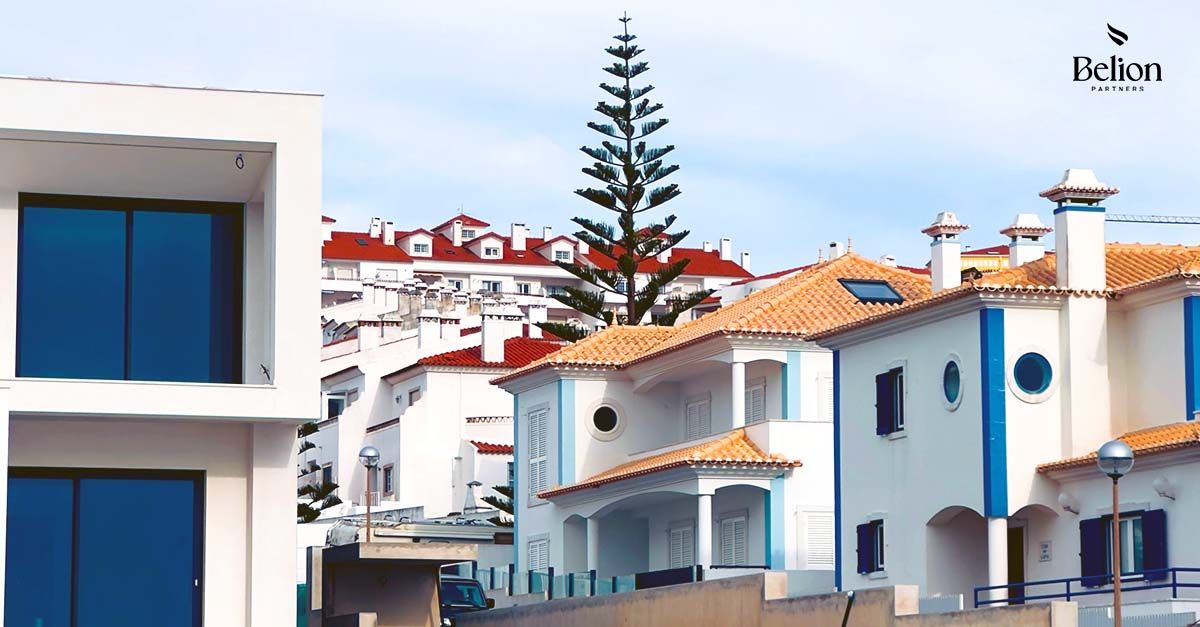I Own a Second Property in Portugal – How to Turn It Into Passive Income?

Author:
Nádia Lavaredas | Property Assistant & Commercial Manager
For many individuals, owning a second property is the result of a carefully planned investment, a family inheritance, or a significant life change. However, once the property is acquired, the crucial question becomes: How can real estate ownership be efficiently and securely monetised?
An unoccupied property inevitably incurs ongoing costs, including property taxes, maintenance fees, insurance, and condominium charges. Nevertheless, if managed correctly, it also represents a significant opportunity for both capital appreciation and a steady income stream.
This is why owning a second home in Portugal can be a smart investment.
What Are the Best Options for a Second Property in Portugal?
Long-term Rental
This option is ideal for real estate investors seeking financial stability and a predictable monthly income. With less frequent tenant turnover and reduced management complexity, it is particularly attractive for absentee owners or investors looking for steady cash flow.
Short-term rental, also known as Alojamento Local (AL), is another viable option. For property owners, this approach can generate higher returns, particularly in prime tourist destinations or urban centres. That said, it requires more active management, including frequent guest turnover, cleaning, maintenance, and compliance with local regulations.
Mixed Use – Personal Use Combined with Rental Income
For owners who wish to enjoy their property during certain periods, renting it out when not in use can balance lifestyle needs with financial benefits, optimising the overall return on investment.
Do you own a second property in Portugal? Are you looking for professional guidance to maximise financial gains from your real estate investment?
Belion Partners has extensive expertise in the Portuguese real estate market. We offer a wide range of services, including property management, short-term rentals, property search, and even real estate legal support through our trusted law firm in our network.
Key Considerations for Effective Management of Real Estate
Regulatory Compliance and Licensing:
Particularly crucial for short-term rentals (AL), where local laws may impose specific licensing requirements and operational restrictions.
This includes drafting and managing rental agreements, securing deposits, ensuring timely maintenance, and providing support to tenants or guests to foster good relationships and reduce vacancy rates.
Market-Driven Rent Optimisation:
Regularly assessing and adjusting rental rates is essential for maintaining competitiveness in the dynamic real estate market. This strategic approach not only maximises income potential but also minimises vacancy periods, ensuring properties remain occupied and profitable. By analysing market trends and tenant demand, property managers can optimise pricing, attract quality tenants, and protect the landlord’s investment.
Legal Protection and Asset Security:
Ensuring that all contracts and operations comply with the law protects the owner’s investment and mitigates risks related to tenant disputes or property damage.
When Time or Expertise Is Limited, Professional Help Makes All the Difference
Managing a second property, especially from a distance or alongside other commitments, can quickly become overwhelming. Engaging a specialised property management company offers peace of mind through transparent, diligent administration tailored to maximise the value of your investment.
Such professionals handle everything—from marketing the property and screening tenants to overseeing maintenance and ensuring legal compliance. In addition, we liaise with the condominium, ensuring you reap the benefits without the usual hassles.
Frequently Asked Questions
Can foreigners rent out property in Portugal?
Yes, foreign property owners can legally rent out their properties in Portugal for both long-term and short-term rentals. However, short-term rentals (Alojamento Local) require proper licensing and registration with local authorities.
What are the tax implications for rental income in Portugal?
Rental income in Portugal is subject to Portuguese personal income tax (IRS). Both residents and non-residents typically pay a flat rate of 25% on rental income. However, property owners—whether residents or not—can choose to aggregate their rental income for personal income tax purposes. This means that the income will be subject to progressive tax rates, along with other sources of income to which those rates apply. For more details, refer to the withholding tax rates that Portugal applies under personal income tax regulations.
Can I manage my Portugal rental property remotely?
Yes, many foreign owners successfully manage properties remotely using local property management companies. These services handle tenant screening, maintenance, legal compliance, and day-to-day operations for typically 8-15% of rental income.
What ongoing costs should I budget for my rental property?
Beyond mortgage payments, budget for property taxes (IMI), insurance, condominium fees, maintenance, utilities (if included), management fees, and income taxes. These typically represent 20-30% of gross rental income.




